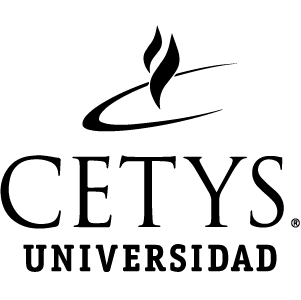https://repositorio.cetys.mx/handle/60000/1960| Campo DC | Valor | Lengua/Idioma |
|---|---|---|
| dc.contributor.author | Mejia, Manuel Alejandro | - |
| dc.contributor.author | Cardoso, Agustin | - |
| dc.contributor.author | Lozoya, Vania | - |
| dc.contributor.author | Bobes león, Antonieta | - |
| dc.date.accessioned | 2025-09-24T19:10:56Z | - |
| dc.date.available | 2025-09-24T19:10:56Z | - |
| dc.date.issued | 2025-09 | - |
| dc.identifier.uri | https://repositorio.cetys.mx/handle/60000/1960 | - |
| dc.description.abstract | Developmental prosopagnosia (DP) is a lifelong condition characterized by difficulties in recognizing faces despite intact vision and intelligence. The 20-Item Prosopagnosia Index (PI20) is a widely used self-report instrument for screening face recognition deficits. However, no standardized Spanish version of the PI20 existed prior to this study, limiting its applicability in Spanish-speaking populations. This study aims to adapt and validate the PI20 for use in Mexican Spanish, ensuring its linguistic, cultural, and psychometric applicability for the Mexican population. Study 1 involved a rigorous translation and cultural adaptation process, including forward translation by multiple independent translators, expert panel review, and cognitive interviews with bilingual Mexican participants. Qualitative analysis of these interviews identified semantic and conceptual issues in several items, which were subsequently revised. A pilot test with 15 participants confirmed the clarity and feasibility of the adapted version, supporting its content validity. Study 2 evaluated the psychometric properties of the adapted PI20 in a sample of 333 adults. The results showed high internal consistency (McDonald's omega and Cronbach's alpha = .84) and good test–retest reliability (ICC2,1= .81). Confirmatory factor analysis supported a unidimensional structure consistent with the original scale, while exploratory analysis revealed two correlated components that did not undermine the overall model. The adapted PI20 showed a moderate negative correlation with the Cambridge Face Memory Test (r=-.229, p<.001), confirming convergent validity, and no significant association with the Cambridge Car Memory Test (r=-.106, p=.061), supporting discriminant validity. These findings demonstrate that the Mexican Spanish version of the PI20 is a reliable and valid tool for assessing DP in Spanish-speaking populations. This culturally adapted instrument can facilitate screening in clinical and research settings and contribute to a better understanding of face recognition difficulties across diverse linguistic and cultural groups. | es_ES |
| dc.language.iso | en_US | es_ES |
| dc.rights | Atribución-NoComercial-CompartirIgual 2.5 México | * |
| dc.rights.uri | http://creativecommons.org/licenses/by-nc-sa/2.5/mx/ | * |
| dc.subject | Prosopagnosia | es_ES |
| dc.subject | México | es_ES |
| dc.title | Adaptation of the 20-Item Prosopagnosia Index for the screening of developmental prosopagnosia in Mexico | es_ES |
| dc.type | Preprint | es_ES |
| dc.subject.sede | Campus Tijuana | es_ES |
| Aparece en las colecciones: | Preprints | |
Este ítem está protegido por copyright original |
Este ítem está sujeto a una licencia Creative Commons Licencia Creative Commons


